ATC, 305E-016-A-1-0-XX, 305E Series Motor-Driven Analog Reset Timer Range 30 Min, ON-Delay, Standart Timer
Features:
- Highest Accuracy
- Plug-In and Dust-Tight Design
- Fastest Reset
- Circuit Flexibility
- Longest Life
- Pilot Light
- Range 30 Min
- ON-Delay
- Standart Timer
The 305E is a versatile reset timer that provides delay, interval, or pulse timing functions for up to 7 load circuits through two instantaneous and two delayed switches. Its plug-in design and cycle progress indication make it user-friendly and reliable. With an average mechanical life expectancy of over 5,000,000 operations before the first failure, the 305E reset timer stands as the leader in its class for endurance and durability.
Noted for its circuit flexibility, the 305 also provides the highest accuracy among analog timers.The 305 provides delay, interval or pulse timing function for up to 7 load circuits through two instantaneous and two delayed switches. It features a plug-in design and cycle progress indication.
Highest Accuracy
Because of its exclusive infinite engagement clutch, the 305 has a repeat accuracy of 0.2%, highest of any timer in its class.
Plug-In and Dust-Tight Design
By virtue of its true plug-in design, the body of a 305 can be replaced in Seconds without disturbing the housing or disconnecting the wiring. Its gasketed dial assembly forms a dust-tight seal against the housing, whether panel or surface-mounted.
Fastest Reset
Timer reset to a full-scale setting within 0.1 Second, proportionately faster for shorter settings.
Circuit Flexibility
All the contacts of its two instantaneous and two delayed load switches are externally accessible at a 14 point terminal block.
Longest Life
With an average mechanical life expectancy of over 5,000,000 operations before the first failure, the 305 is the leader in its class.
Pilot Light
A built-in pilot light indicates that the timer is running. The 305 is a synchronous motor-driven timer with an electrically-operated clutch equipped either for ON-Delay operation.
ON-Delay
When power is applied (start signal on), the clutch solenoid is energized. Two things happen immediately and simultaneously, the instantaneous switches transfer from one set of contacts to the other, and the motor begins to drive the cycle progress pointer toward zero. At the end of the timed period, the pointer trips one of the delayed switches, a brief time later (about 1/2% of full scale), the other delayed switch is tripped, stopping the timer motor but leaving the clutch engaged. The timer does not reset until power to the clutch is removed.
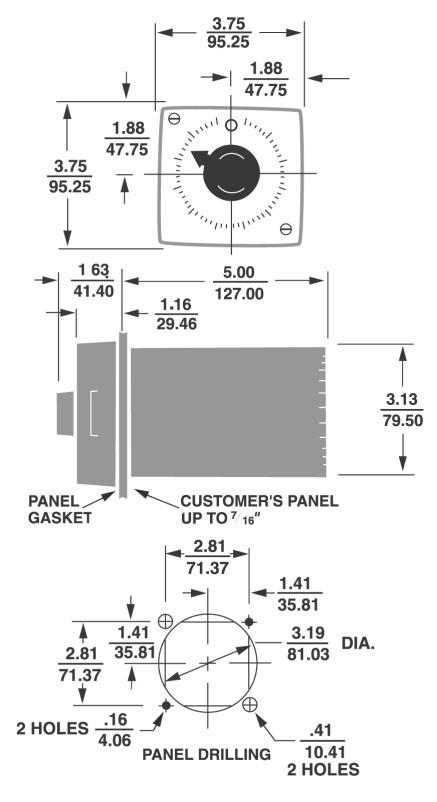
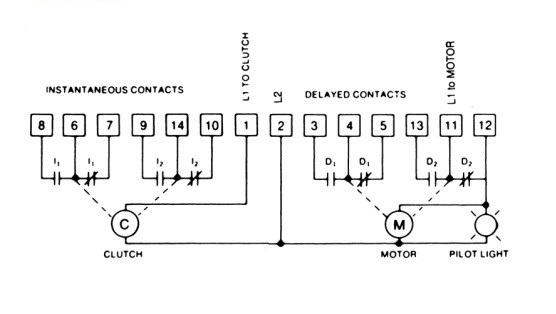
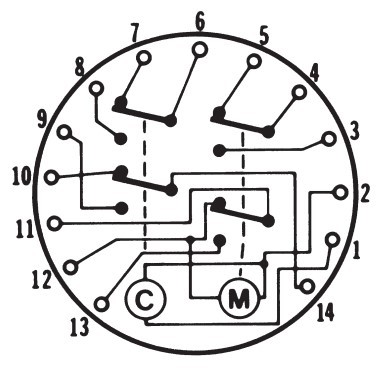
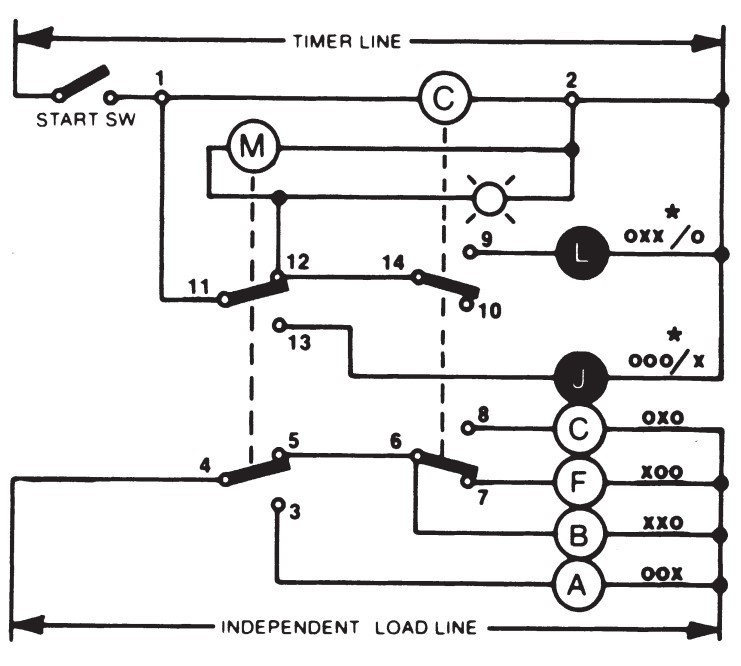
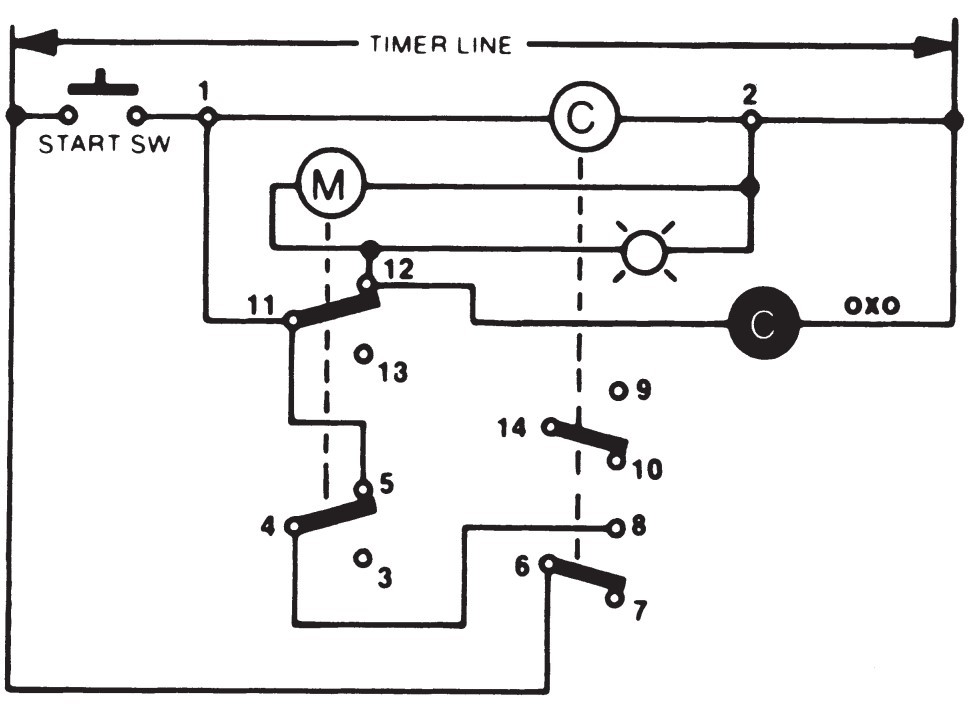
For more information, please see  Data Sheet
Data Sheet